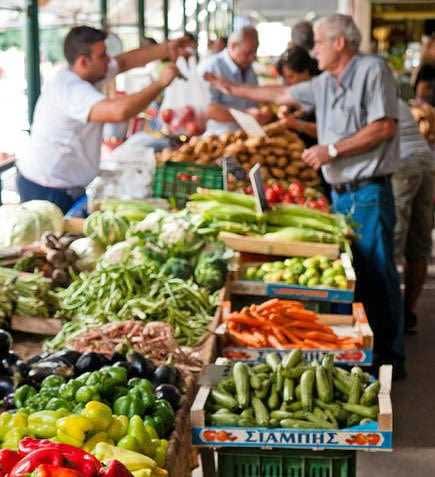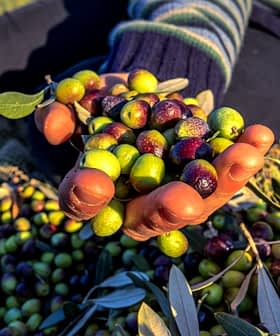
According to a recent report, the world’s top olive oil consuming countries are switching to cheaper vegetable oils as a result of the economic crisis. The report, featured in Bloomberg, found that Spain, Italy and Greece are using less of the more costly olive oil in the face of unemployment and reduced disposable income. However, Greek olive oil industry leader says this doesn’t apply to Greece.
The report by the Germany-based oilseed industry researcher, Oil World, found that the results are “unprecedented” compared to seven years ago. Then, olive oil prices were up to 40 percent higher yet that hardly made a dent in the three countries’ total olive oil consumption. However, recent figures reveal that sunflower oil, corn oil and palm oil have taken more market share.
Some Greek olive oil experts don’t believe Greeks are consuming other types of vegetable oils due to the crisis. In an interview with Olive Oil Times, Dr. Nick Michelakis, scientific adviser of the Association of Cretan Olive Oil Municipalities (SEDIK) said that is because olive oil is a “subsistence” product in Greece. Greeks have always had the need to produce their own oil rather than buy it from a store.
“A four-member family can consumer up to 80 liters annually so buying from the supermarket in small quantities doesn’t make sense in terms of value. This system, despite the differing opinions in the industry, works for Greece because it basically keeps the level of per capita consumption at 20 liters per year per individual which is the highest in the world.”
Also according to Olive World, olive oil consumption in the European Union is forecast to slide by “an unprecedented” 270,000 tons, or 13 percent, to 1.74 million tons in the season through September, 2013. The report also pointed to Spain’s drought, which caused a drop in production to 614,000 tons from an all-time high 1.6 million tons.
Michelakis said Spain’s performance in the market certainly affects the industry as a whole. However, he says that Greeks, in his opinion, haven’t reduced consumption and will continue to keep olive oil in their daily diet in a way that can’t officially be shown in reports.
“The consumption trends in Crete that I see are that supermarket-bought olive oil mainly goes to tourists. To a large extent this is the case in other parts of Greece. It makes sense, especially now, to get your oil in bulk from your own trees or relative producers,” said Michelakis.








